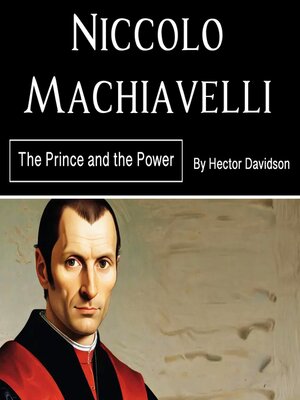
Sign up to save your library
With an OverDrive account, you can save your favorite libraries for at-a-glance information about availability. Find out more about OverDrive accounts.
Find this title in Libby, the library reading app by OverDrive.



Search for a digital library with this title
Title found at these libraries:
| Library Name | Distance |
|---|---|
| Loading... |
Niccolò Machiavelli, the Renaissance political thinker and diplomat, remains one of the most influential figures in political philosophy, and his ideas continue to shape modern discussions on leadership, power, and governance. His most famous work, The Prince, has long been recognized as a manual for rulers navigating the complexities of political life, emphasizing pragmatic strategies over idealistic visions of statecraft. In the centuries since its publication, Machiavelli's work has both captivated and provoked scholars, politicians, and leaders, and his theories remain as relevant today as when they were first written.
At the heart of Machiavelli's philosophy is his focus on the practical realities of political power. Unlike many political theorists who are concerned with how politics should be ideally structured, Machiavelli emphasized how politics actually works. The Prince offers rulers advice on how to secure and maintain power, often advocating methods that defy traditional moral or ethical considerations. His famous assertion that "the ends justify the means" has become synonymous with political maneuvering that prioritizes results over values, positioning him as both a realist and a controversial figure in political thought.
Machiavelli's impact extends beyond just the realm of politics. His ideas on leadership, human nature, and the strategic use of power have influenced not only political theory but also military strategy, business practices, and even popular culture. His work on statecraft speaks to a deep understanding of human behavior, and his insights into the manipulation of public perception, the nature of fear and loyalty, and the balancing of power dynamics have resonated across various disciplines. Whether used to guide national leadership or inform business strategy, Machiavellian principles are often invoked when discussing tactics for navigating complex, power-driven environments.







